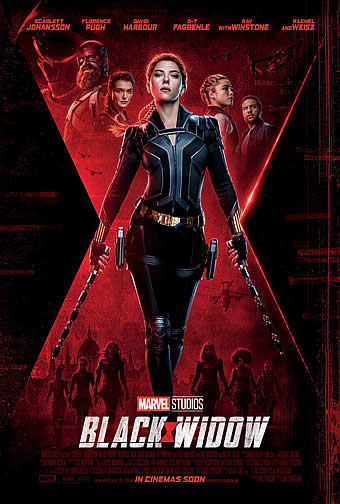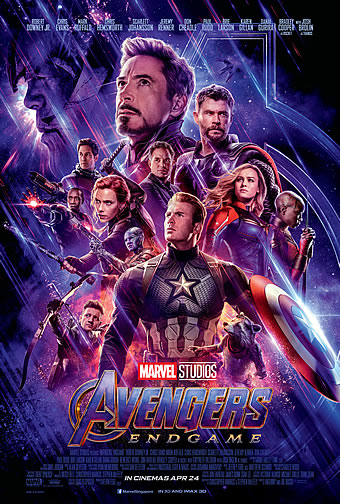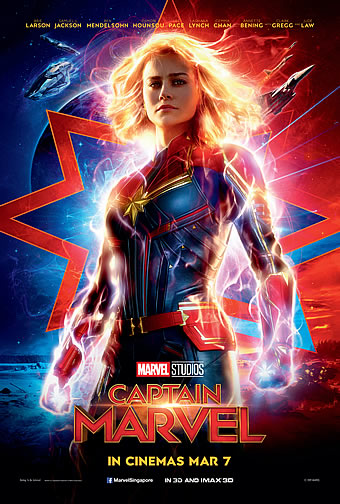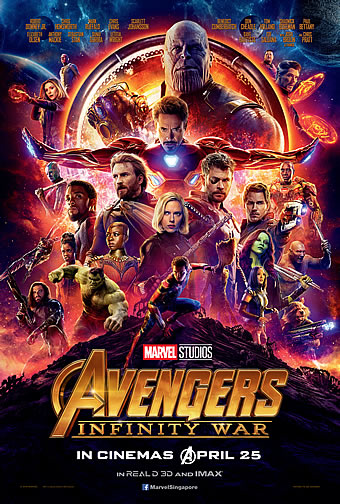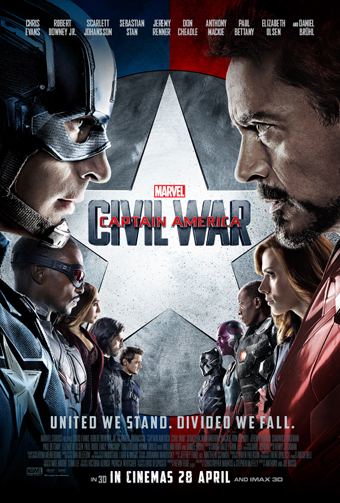BLACK WIDOW (2020)
Genre: Action/Comics
Director: Cate Shortland
Cast: Scarlett Johansson, Florence Pugh, Rachel Weisz, David Harbour, O-T Fagbenle, Olga Kurylenko, Ray Winstone, William Hurt
Runtime: 2 hr 14 mins
Rating: PG13 (Some Violence)
Released By: Walt Disney
Official Website: https://movies.disney.com/black-widow
Opening Day: 8 July 2021
Synopsis:
Scarlett Johansson reprises her role as Natasha/Black Widow in Marvel Studios' action-packed spy thriller Black Widow- the first film in Phase Four of the Marvel Cinematic Universe. Florence Pugh stars as Yelena, David Harbour as Alexei aka The Red Guardian and Rachel Weisz as Melina. Directed by Cate Shortland and produced by Kevin Feige.
Movie Review:
As far as the Marvel Cinematic Universe (MCU) is concerned, ‘Black Widow’ isn’t a keystone by any measure. For one, we already know the fate of the titular former Russian spy from ‘Avengers: Endgame’; and for another, it is meant to fill the narrative gap between ‘Captain America: Civil War’ and ‘Avengers: Infinity War’, which is technically inessential to Phase 4 of the MCU. And yet, this standalone adventure of Natasha Romanoff adds surprising breadth and depth to the latest MCU cycle, not just by playing it different as an espionage thriller but also by being a compelling examination of the very nature of family (no, not the way Vin Diesel’s Dominic Toretto likes to define it).
That emphasis on family is framed by a preface, set in Ohio in 1995, which finds young Natasha (Ever Anderson) seemingly living the all-American life with her mother (Rachel Weisz) and younger sister (Violet McGraw) – until suddenly they aren’t. In a moment, dad (David Harbour) returns home and gathers the ‘family’ to make a spectacular airplane getaway from US government (namely, S.H.I.E.L.D.) agents. By the end of that pre-credits sequence, we’d have learnt that they were in fact a Russian sleeper cell, and how Natasha and her sister Yelena are separated from their parents as well as from each other to be sent to a KGB training facility for elite assassins called Black Widows.
Flash-forward two decades later, Natasha (Scarlett Johansson) has now gone into exile in rural Norway following the disastrous events of ‘Captain America: Civil War’, hiding out from a team of federal agents led by Thaddeus Ross (William Hurt). On the other hand, Yelena is on a mission in Morocco to retrieve a mysterious box containing a number of glowing-red phials, which as we learn, are the antidote to releasing the Widows from the brainwashing technology of their programme masterminded by General Dreykov (Ray Winstone). Thanks to her target she unfortunately kills, Yelena is set free, setting in motion a series of events for Natasha and her to be reunited in a Budapest apartment for a knock-down, drag-out fight as they struggle to ascertain each other’s loyalties.
What ensues is a movie that unfolds both as domestic dramedy and as big-bang Marvel spectacle. The former sees Natasha and Yelena reunited with their ‘parents’ – their father Alexei a has-been Sovier-sponsored super-soldier nicknamed ‘Red Guardian’ whom they rescue from his languish in a moldering prison longing for his glory days, and their mother Melina the very biologist who had developed the mind control process for the Widows programme whom they search out at a remote farm in Russia. The reunion is both amusing and poignant at the same time, probing what constitutes a family in which children can or cannot be loved; and in its intimate examination of family, demonstrative of director Cate Shortland’s skill at intensely observant portraits of isolated young women.
In between the drama, Shortland offers up a steady stream of fights, chases and fireballs to keep Marvel fans contented, including the aforementioned smashmouth brawl, a breathless vehicular chase and a mid-avalanche prison evacuation. Most notably, the fight choreography – directed by Darrin Prescott of ‘Black Panther’, ‘Captain America: Civil War’ and the ‘John Wick’ trilogy – is impressively acrobatic, as Natasha and Yelena take turns facing off with a robotic killer known as the Taskmaster (whose identity is one of the brilliant turns in screenwriter Eric Pearson’s otherwise competent plotting). The extended finale set atop Dreykov’s aerial Red Room is appropriately intense and exhilarating, stuffed with explosions and gravity-defying stunts that cap the movie in typical Marvel fashion.
Amidst the action, Johansson gives her all to the movie her Marvel character has long deserved. As the main event, Johansson shows shades of vulnerability and self-doubt in Natasha that she’s rarely been able to before, what with the focus being on her one-fisted, hair-tossing superhero landing (which this movie is adroit enough to poke fun at). Johansson also deserves credit for letting Pugh bloom aside her, the actress expertly channeling her signature anxious-tough balance of feminine characters (from movies such as ‘Little Women’ and ‘Midsommar’) to Yelena’s wounded idealism. The supporting cast, especially Harbour, Weisz and Winstone, are uniformly excellent, and we dare say we would be pleasantly delighted to see Harbour get a spinoff of his own.
So even as ‘Black Widow’ isn’t a necessary canon in the MCU, it still is a marvellous start to Phase 4. More than the set pieces, it focuses on the human being behind the shield of a superhero, with due emphasis on character dynamics to make it a suitably gripping origin tale of family trauma, identity crisis and sibling rivalry. If indeed this is Johansson’s last spin around the track as the titular superhero, it is as distinguished a send-off as both the actress and her character should get. And as the first MCU movie in two years, it is a reminder of just why each film is a cinematic experience that should be seen on the biggest screen possible.
Movie Rating:




(A befitting sendoff for the titular superhero, this standalone adventure adds surprising breadth and depth to the latest MCU cycle, playing it different as an espionage thriller and compellingly examining the very nature of family)
Review by Gabriel Chong
You might also like:
